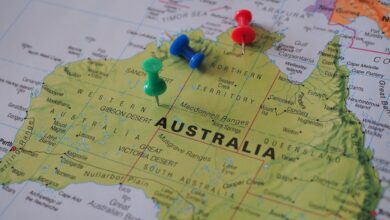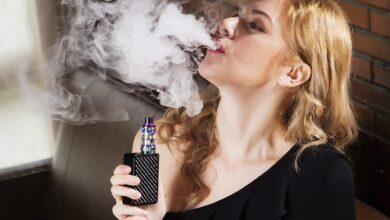Wellhealthorganic.com/know-the-causes-of-white-hair-and-easy-ways-to-prevent-it-naturally

White hair, often seen as a sign of aging, can occur at any stage of life due to various reasons. While some people embrace their silver strands, others may seek ways to Wellhealthorganic.com/know-the-causes-of-white-hair-and-easy-ways-to-prevent-it-naturally. Understanding the causes of white hair and exploring natural prevention methods can be empowering. This article delves into 15 known causes of white hair and provides easy, natural ways to prevent it.
1. Genetic Predisposition
Understanding the Genetic Link
Genetics play a significant role in Wellhealthorganic.com/know-the-causes-of-white-hair-and-easy-ways-to-prevent-it-naturally and how your hair will turn white. If your parents or grandparents experienced premature graying, chances are you might too. The genetic predisposition to gray hair is inherited and usually unavoidable.
Natural Prevention Tips
- Balanced Diet: Consuming a diet rich in vitamins and minerals can support hair health. Include foods high in antioxidants, such as berries, nuts, and green leafy vegetables.
- Herbal Supplements: Consider herbal supplements like amla (Indian gooseberry) which is known to promote hair pigmentation.
2. Vitamin Deficiency
Key Vitamins for Hair Health
Deficiencies in vitamins, particularly B vitamins, vitamin D, and vitamin E, can lead to premature graying. These vitamins are crucial for maintaining healthy hair follicles and melanin production.
Natural Prevention Tips
- Vitamin-Rich Foods: Incorporate foods rich in vitamins B12, B6, and E such as eggs, dairy products, nuts, seeds, and leafy greens into your diet.
- Sun Exposure: Ensure adequate sun exposure for natural vitamin D synthesis. Aim for at least 15-20 minutes of sunlight daily.
3. Oxidative Stress
Impact of Free Radicals
Oxidative stress caused by free radicals can damage hair follicles, leading to premature graying. Environmental factors like pollution, UV rays, and chemicals contribute to oxidative stress.
Natural Prevention Tips
- Antioxidant Intake: Consume antioxidant-rich foods like berries, nuts, and green tea to combat free radicals.
- Protective Measures: Use natural hair products free from harsh chemicals and consider wearing hats or scarves to protect your hair from UV damage.
4. Smoking
Nicotine and Hair Health
Smoking accelerates the aging process, including premature graying. The toxins in cigarettes can damage hair follicles and reduce melanin production.
Natural Prevention Tips
- Quit Smoking: The most effective way to prevent smoking-related hair issues is to quit smoking.
- Detoxification: Support your body’s detoxification process with a diet rich in fruits and vegetables and stay hydrated.
5. Stress
Stress and Melanin Production
Chronic stress can disrupt the production of melanin, the pigment responsible for hair color. Stress-induced hormones like cortisol can affect hair follicles.
Natural Prevention Tips
- Stress Management: Practice stress-reducing techniques such as meditation, yoga, deep breathing exercises, and regular physical activity.
- Herbal Teas: Drinking herbal teas like chamomile or lavender can have a calming effect.
6. Hormonal Changes
Hormones and Hair Color
Hormonal imbalances, particularly those related to thyroid conditions, can lead to premature graying. Conditions like hyperthyroidism and hypothyroidism affect hair pigmentation.
Natural Prevention Tips
- Regular Check-Ups: Monitor your thyroid levels regularly and seek medical advice if you notice significant changes.
- Balanced Diet: Maintain a balanced diet that supports hormonal health, including foods rich in iodine and selenium like seafood and nuts.
7. Autoimmune Diseases
Immune System and Hair Pigmentation
Autoimmune diseases such as alopecia areata and vitiligo can affect hair pigmentation. These conditions cause the immune system to attack hair follicles, leading to white or gray hair.
Natural Prevention Tips
- Anti-Inflammatory Diet: Follow an anti-inflammatory diet rich in omega-3 fatty acids, found in fish, flaxseeds, and walnuts.
- Herbal Remedies: Herbs like turmeric and ginger have anti-inflammatory properties that can support immune health.
8. Chemical Exposure
Harsh Chemicals and Hair Damage
Exposure to harsh chemicals in hair dyes, shampoos, and other hair products can damage hair follicles and lead to premature graying.
Natural Prevention Tips
- Natural Hair Care: Opt for natural hair care products that are free from sulfates, parabens, and synthetic dyes.
- Homemade Hair Treatments: Use natural ingredients like henna, indigo, and hibiscus for coloring and conditioning your hair.
9. Nutritional Imbalance
Diet and Hair Health
An imbalanced diet lacking essential nutrients can lead to premature graying. Hair requires a variety of vitamins and minerals to maintain its natural color and health.
Natural Prevention Tips
- Balanced Diet: Ensure your diet is balanced and includes a variety of fruits, vegetables, whole grains, and proteins.
- Superfoods: Incorporate superfoods like spirulina, chlorella, and wheatgrass, which are packed with nutrients beneficial for hair health.
10. Lack of Melanin
Melanin Production
Melanin is the pigment responsible for hair color. As we age, melanin production decreases, leading to white hair.
Natural Prevention Tips
- Copper Intake: Increase your intake of copper-rich foods like lentils, almonds, and dark chocolate, as copper is essential for melanin production.
- Ayurvedic Remedies: Consider Ayurvedic treatments like Bhringraj oil, which is known to support hair pigmentation.
11. Poor Hair Care
Impact of Hair Care Practices
Improper hair care practices, such as excessive use of heat styling tools, harsh brushing, and frequent washing with hot water, can damage hair and lead to premature graying.
Natural Prevention Tips
- Gentle Hair Care: Use lukewarm water for washing your hair, and avoid excessive heat styling. Opt for a wide-tooth comb to prevent breakage.
- Natural Oils: Regularly massage your scalp with natural oils like coconut oil, almond oil, or castor oil to nourish and strengthen hair.
12. Environmental Factors
Pollution and Hair Damage
Environmental pollutants can contribute to hair damage and premature graying by generating free radicals that affect hair follicles.
Natural Prevention Tips
- Protective Hairstyles: Wear protective hairstyles and cover your hair when exposed to high levels of pollution.
- Regular Cleansing: Regularly cleanse your hair and scalp to remove pollutants, using gentle, natural shampoos.
13. Lack of Exercise
Exercise and Blood Circulation
Regular physical activity improves blood circulation, which in turn nourishes hair follicles and supports healthy hair pigmentation.
Natural Prevention Tips
- Exercise Routine: Incorporate regular exercise into your routine, such as walking, jogging, or yoga, to boost blood circulation.
- Scalp Massages: Perform scalp massages to improve blood flow to the hair follicles.
14. Sleep Deprivation
Impact of Sleep on Hair Health
Lack of sleep can affect overall health, including hair health. During sleep, the body repairs and regenerates cells, including hair cells.
Natural Prevention Tips
- Adequate Sleep: Aim for 7-8 hours of quality sleep each night to support hair health.
- Relaxation Techniques: Practice relaxation techniques such as deep breathing, meditation, and maintaining a consistent sleep schedule.
15. Dehydration
Hydration and Hair Health
Dehydration affects the body’s ability to deliver essential nutrients to hair follicles, leading to dry, brittle hair and potential premature graying.
Natural Prevention Tips
- Stay Hydrated: Drink at least 8 glasses of water a day to keep your body and hair hydrated.
- Hydrating Foods: Include hydrating foods like cucumbers, watermelon, and oranges in your diet.
Conclusion on Wellhealthorganic.com/know-the-causes-of-white-hair-and-easy-ways-to-prevent-it-naturally
Wellhealthorganic.com/know-the-causes-of-white-hair-and-easy-ways-to-prevent-it-naturally, understanding the various causes and taking preventive measures can help maintain your natural hair color for longer. Embracing a holistic approach that includes a balanced diet, stress management, proper hair care, and a healthy lifestyle can significantly impact hair health. Remember, every individual is unique, and it’s essential to find what works best for you.




